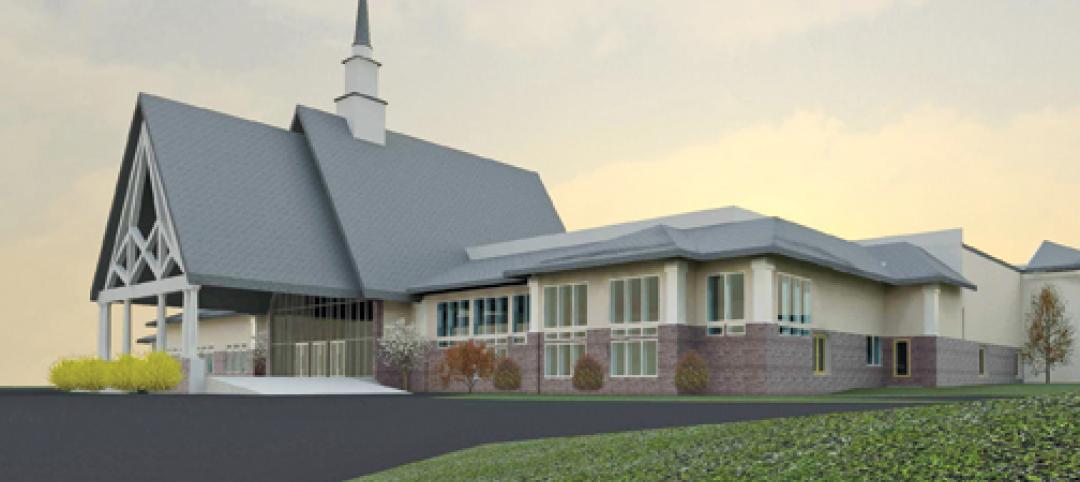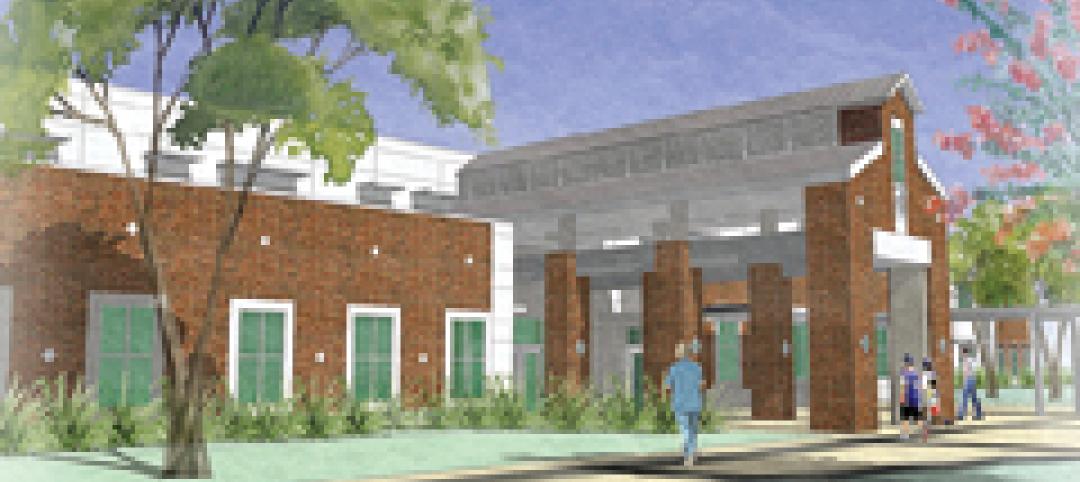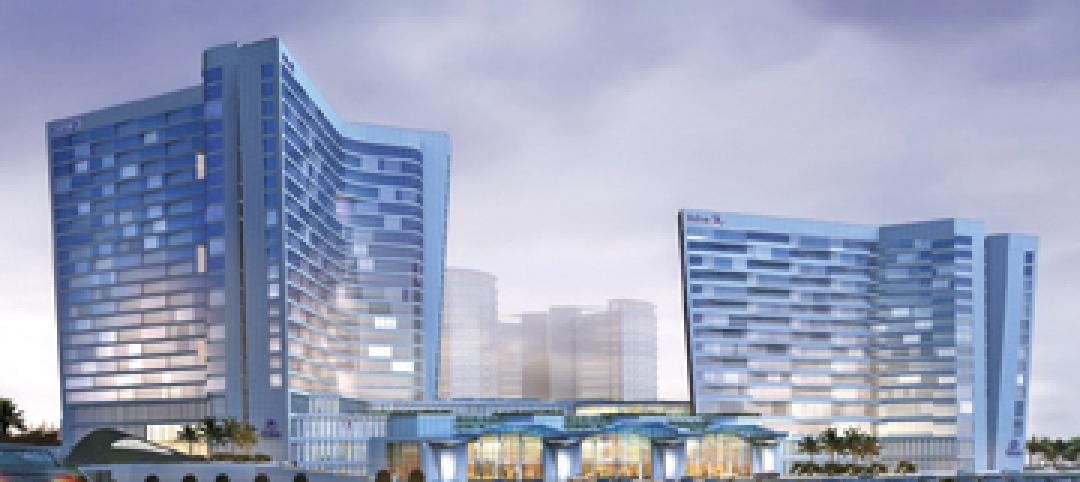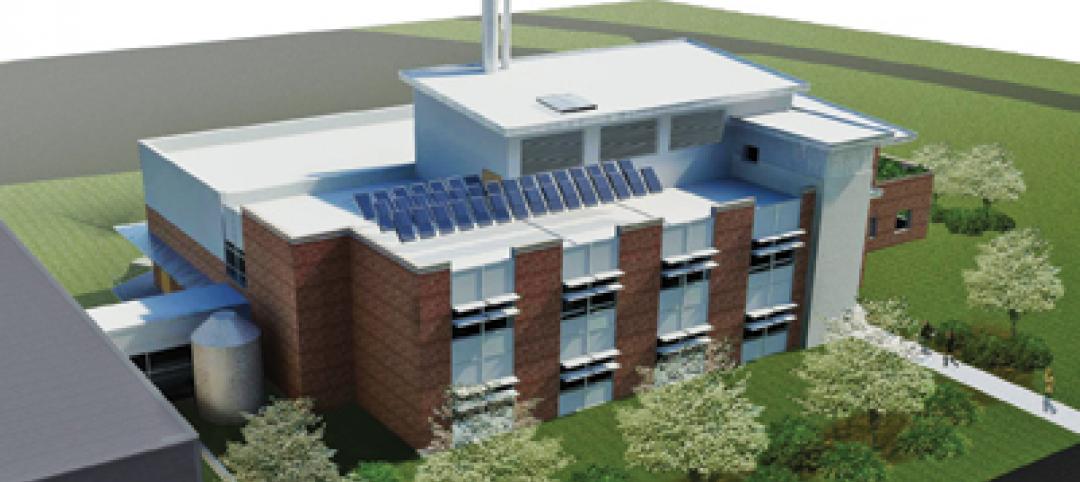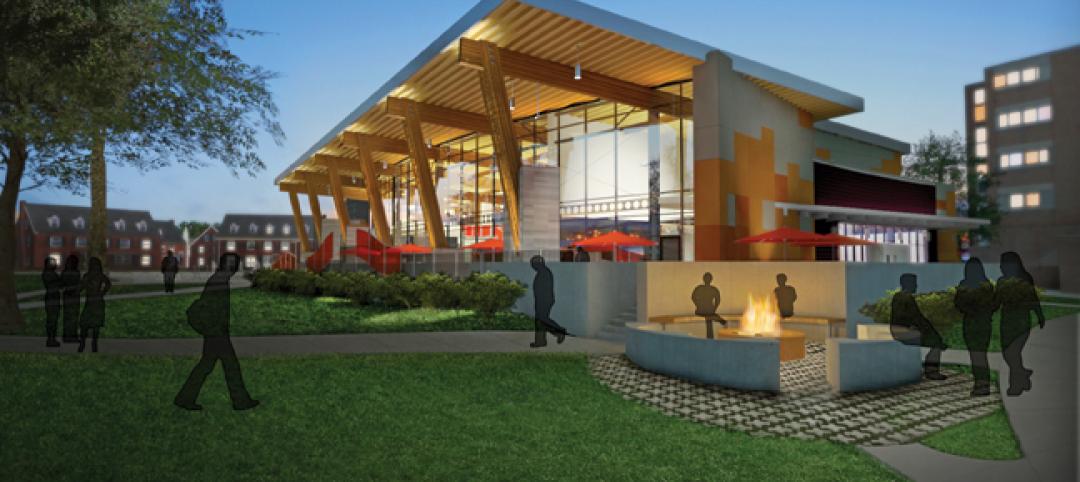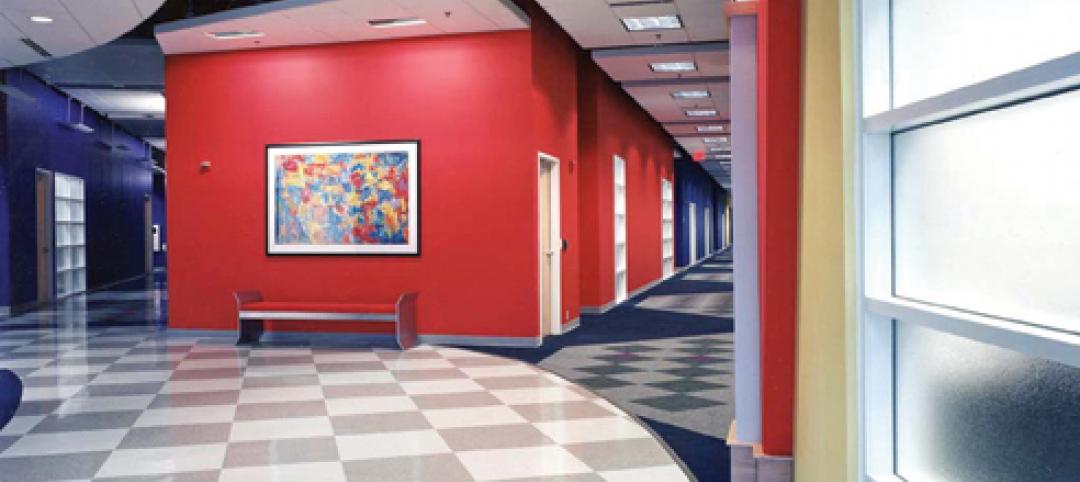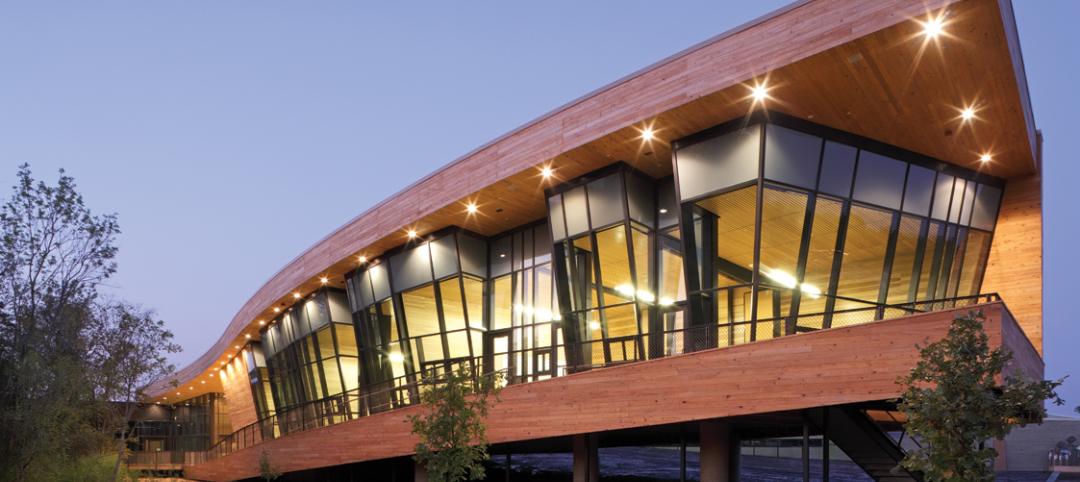| The intra-operative MRI system at the United Hospital Nasseff Neuroscience Center in St. Paul, Minn., will allow neurosurgeons to perform real-time MRI scans during operations to confirm that all cancerous tissue is removed during procedures. |
11. Operating Room-Integrated MRI will Help Neurosurgeons Get it Right the First Time
A major limitation of traditional brain cancer surgery is the lack of scanning capability in the operating room. Neurosurgeons do their best to visually identify and remove the cancerous tissue, but only an MRI scan will confirm if the operation was a complete success or not. Consequently, patients must be stitched up and wheeled into the MRI room for further scans. If cancer is still present, further surgery is often required.
To avoid putting its patients through this painful cycle of surgeries and scans, the United Hospital Nasseff Neuroscience Center in St. Paul, Minn., is collaborating with HDR Architecture on an intra-operative MRI system. This "MRI on a track" will be able to move between two operating rooms and spin in any direction, allowing neurosurgeons to perform real-time MRI scans during operations.
"The neurosurgeon can use the intra-operative MRI to confirm that the entire tumor was removed before closing, thus reducing the need for additional operations," says Douglas S. Wignall, AIA, RAIC, international healthcare director with HDR Architecture, Omaha, Neb. In addition, Wignall says the mobility of the system allows the neurosurgeon to update images quickly and efficiently so that surgical adjustments and decisions can be made with pinpoint accuracy.
"This is one example of how architecture can help save lives," says Wignall.
| The new SYNC modular nursing station line from Nurture by Steelcase is designed to accommodate both centralized and decentralized spaces. |
12. Nursing Stations Go Modular
Modular nursing stations are designed to accommodate virtually any healthcare environment, whether for centralized or decentralized spaces, standard or high-tech facilities, or new or retrofit projects. HDR Architecture collaborated with Nurture by Steelcase on the SYNC line, which was inspired by the way people fit in cockpits and automobiles. It accommodates multiple users, heights, and movements.
The centralized solution is offered in three fixed heights—28½, 36, and 42 inches—to provide seated, service counter, and standing solutions. Widths are available in one-foot increments from five to nine feet, and integrated monitor arms have 160-degree adjustability for sharing information between caregivers. The product sits elevated off the floor, creating a light, minimalistic look.
The decentralized products provide height-adjustable (23 to 48 inches), fixed, or combination surfaces in eight shapes. Two-person configurations allow each work surfa
ce to be adjusted individually.
| A. Secondary MOB. B. MOB. C. Hospital. D. Nursing units. E. Signature entry rotunda. F. Future construction, including hospital expansion, additional MOB, clinic, and parking. G. Future helipad. |
13. Template Helps Hospitals Open Quickly and Efficiently
Faced with the unprecedented task of having to replace half its California hospital beds by 2015, Oakland, Calif.-based Kaiser Permanente, the nation's largest nonprofit HMO, enlisted SmithGroup and Chong Partners Architecture (now Stantec Architecture) to collaborate on the design of a new hospital template—a state-of-the-art, prototypical hospital that could be built on many different sites with only minimal changes to the basic concept for quick and efficient construction.
Luckily, the team wasn't starting from scratch. Over the years Kaiser had developed best-practices templates for emergency departments, patient rooms, and other individual clinical spaces and those pieces were combined into a single configuration for an entire hospital. The resulting template consists of common planning concepts, floor plans, equipment and furnishings, and structural and building systems. Exterior skins and colors vary from site to site. So far Kaiser has built five hospitals using the template, which shaved 15 to 18 months off its typical new hospital timeline.
Related Stories
| Nov 3, 2010
New church in Connecticut will serve a growing congregation
Tocci Building Companies will start digging next June for the Black Rock Congregational Church in Fairfield, Conn. Designed by Wiles Architects, the 103,000-sf multiuse facility will feature a 900-person worship center with tiered stadium seating, a children’s worship center, a chapel, an auditorium, a gymnasium, educational space, administrative offices, commercial kitchen, and a welcome center with library and lounge.
| Nov 3, 2010
Senior housing will be affordable, sustainable
Horizons at Morgan Hill, a 49-unit affordable senior housing community in Morgan Hill, Calif., was designed by KTGY Group and developed by Urban Housing Communities. The $21.2 million, three-story building will offer 36 one-bed/bath units (773 sf) and 13 two-bed/bath units (1,025 sf) on a 2.6-acre site.
| Nov 3, 2010
Designs complete for new elementary school
SchenkelShultz has completed design of the new 101,270-sf elementary Highlands Elementary School, as well as designs for three existing buildings that will be renovated, in Kissimmee, Fla. The school will provide 48 classrooms for 920 students, a cafeteria, a media center, and a music/art suite with outdoor patio. Three facilities scheduled for renovations total 19,459 sf and include an eight-classroom building that will be used as an exceptional student education center, a older media center that will be used as a multipurpose building, and another building that will be reworked as a parent center, with two meeting rooms for community use. W.G. Mills/Ranger is serving as CM for the $15.1 million project.
| Nov 3, 2010
Chengdu retail center offers a blend of old and new China
The first phase of Pearl River New Town, an 80-acre project in Chengdu, in China’s Wenjiang District, is under way along the banks of the Jiang’an River. Chengdu was at one time a leading center for broadcloth production, and RTKL, which is overseeing the project’s master planning, architecture, branding, and landscape architecture, designed the project’s streets, pedestrian pathways, and bridges to resemble a woven fabric.
| Nov 3, 2010
Rotating atriums give Riyadh’s first Hilton an unusual twist
Goettsch Partners, in collaboration with Omrania & Associates (architect of record) and David Wrenn Interiors (interior designer), is serving as design architect for the five-star, 900-key Hilton Riyadh.
| Nov 3, 2010
Virginia biofuel research center moving along
The Sustainable Energy Technology Center has broken ground in October on the Danville, Va., campus of the Institute for Advanced Learning and Research. The 25,000-sf facility will be used to develop enhanced bio-based fuels, and will house research laboratories, support labs, graduate student research space, and faculty offices. Rainwater harvesting, a vegetated roof, low-VOC and recycled materials, photovoltaic panels, high-efficiency plumbing fixtures and water-saving systems, and LED light fixtures will be deployed. Dewberry served as lead architect, with Lord Aeck & Sargent serving as laboratory designer and sustainability consultant. Perigon Engineering consulted on high-bay process labs. New Atlantic Contracting is building the facility.
| Nov 3, 2010
Dining center cooks up LEED Platinum rating
Students at Bowling Green State University in Ohio will be eating in a new LEED Platinum multiuse dining center next fall. The 30,000-sf McDonald Dining Center will have a 700-seat main dining room, a quick-service restaurant, retail space, and multiple areas for students to gather inside and out, including a fire pit and several patios—one of them on the rooftop.
| Nov 2, 2010
11 Tips for Breathing New Life into Old Office Spaces
A slowdown in new construction has firms focusing on office reconstruction and interior renovations. Three experts from Hixson Architecture Engineering Interiors offer 11 tips for office renovation success. Tip #1: Check the landscaping.
| Nov 2, 2010
Cypress Siding Helps Nature Center Look its Part
The Trinity River Audubon Center, which sits within a 6,000-acre forest just outside Dallas, utilizes sustainable materials that help the $12.5 million nature center fit its wooded setting and put it on a path to earning LEED Gold.
| Nov 2, 2010
A Look Back at the Navy’s First LEED Gold
Building Design+Construction takes a retrospective tour of a pace-setting LEED project.





